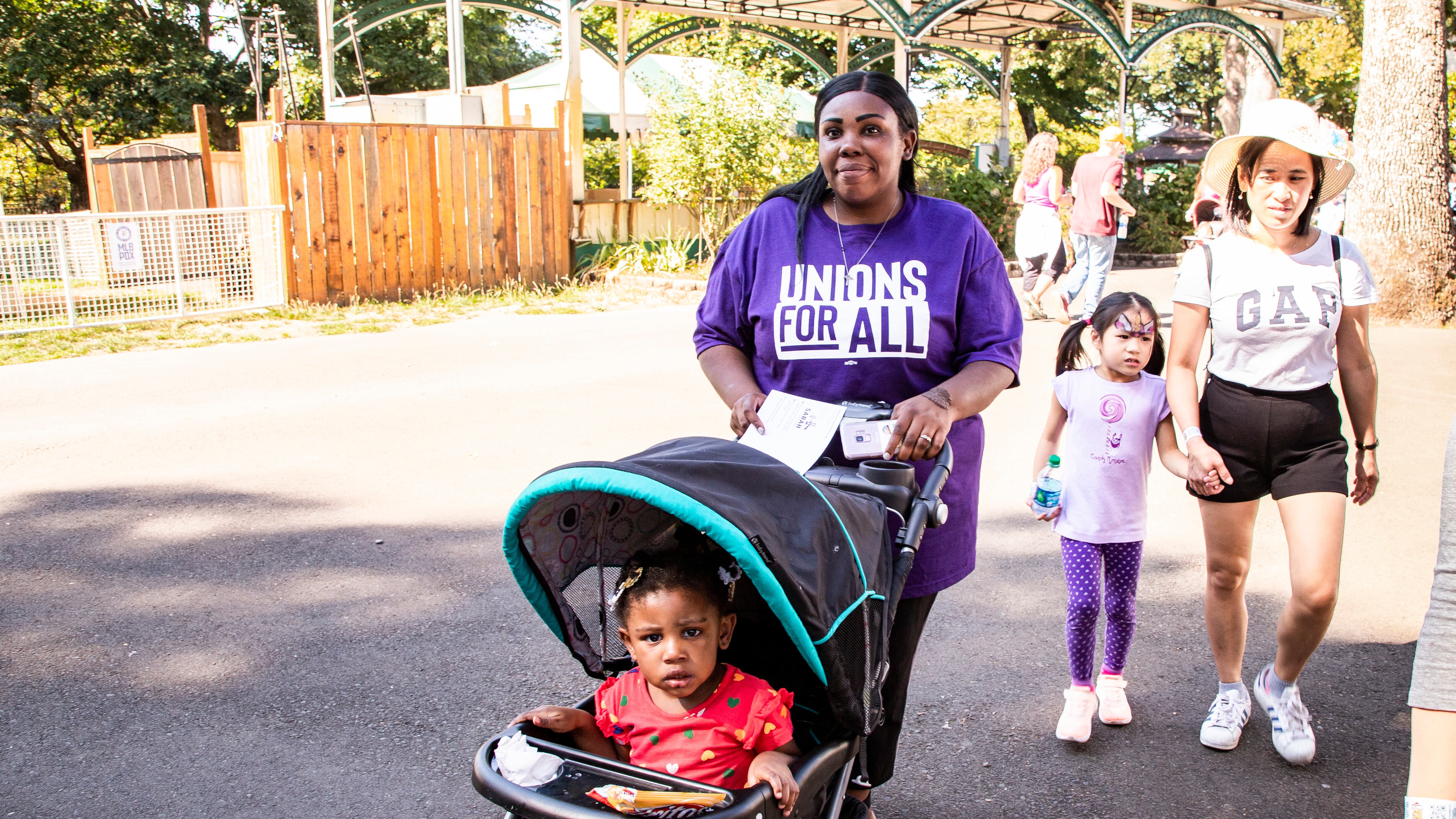LABOR DAY PICNIC BOOTED FROM OAKS PARK: For at least two decades, the unofficial kickoff to election season in even-numbered years has been the Labor Day picnic at Oaks Amusement Park hosted by the Northwest Oregon Labor Council. The event regularly attracts more than 10,000 attendees, many of them wearing T-shirts identifying their union affiliation. The concentration of labor might—not to mention beers, burgers and brats—has long made the event a must for Democratic candidates seeking face time with the base and an opportunity to take the stage. But Oaks Park has taken a beating during COVID, losing well over $1 million in 2020, according to its tax return. And after canceling two years in a row, the Labor Day event will not be back. “It’s really a shame because everybody looks forward to the picnic,” says Joe Baessler, political director for the American Federation of State, County and Municipal Employees in Oregon. Oaks Park CEO Brandon Roben says the change is not about money. The amusement park is operating at reduced capacity and simply cannot accommodate the crowds the council picnic would bring. “We just don’t have the resources,” Roben says.
CRITICS ORGANIZE AGAINST NEW I-5 BRIDGE: As the latest version of the proposed Interstate Bridge replacement between Portland and Vancouver moves toward votes at Metro, Multnomah County and the city of Portland, critics from more than two dozen environmental, transportation and social justice organizations went on the attack this week. They claim the project would worsen carbon emissions, is being fast-tracked without sufficient planning or financial vetting, and that the two state departments of transportation have failed to consider alternatives. “The IBR would be the most expensive infrastructure project in the region’s history, and the two state DOTs have failed to do even the most basic financial planning,” says Portland economist Joe Cortright of the Just Crossing Alliance. “The project’s traffic forecasts are inaccurate, the cost estimates are based on decade-old engineering work, and the selected high bridge option is the riskiest, most expensive and least affordable approach to solving this problem.”
WHEELER PLEDGES TO INCREASE HOMELESS CAMP SWEEPS: Portland Mayor Ted Wheeler announced at a June 13 press conference that the city would expand an approach it has taken in Old Town over the past few months to clear camps and offer shelter to the houseless. Hundreds of camps in Old Town were cleared this spring from streets where gun violence and drug dealing had alarmed health clinic employees reporting to work (“Breakdown,” WW, May 11). Now Wheeler says he is looking to broaden sweeps to “all neighborhoods in the city of Portland.” The mayor says the city cleared 137 camps citywide in April and swept 206 camps in May. Outreach workers made contact with everyone forced to move this spring as part of the city and county’s new streamlined approach to homelessness launched this spring under the mayor’s emergency declaration to clear the city’s streets—though only 64 people, Wheeler noted, were referred to shelters.
COUNTY PONDERS RANKED CHOICE VOTING: As WW has previously reported, the city of Portland’s charter review committee wants city voters to consider switching the current method of electing candidates to ranked choice voting, a process that calls on voters to rank candidates for office. Votes are then tallied, and the candidate with the fewest top-choice votes is eliminated. Voters who picked the eliminated candidate as their first choice then have their votes go to their second-choice candidate. Votes are tallied again and the lowest-ranking candidate eliminated until one candidate gets a majority. Portland isn’t the only local government weighing this idea. On June 15, the Multnomah County charter review commission will consider a recommendation by its equitable representation subcommittee that the county adopt ranked choice voting for all elections. The charter review committee then has until Aug. 4 to decide whether to ask county commissioners to put that question before voters on the November ballot.

